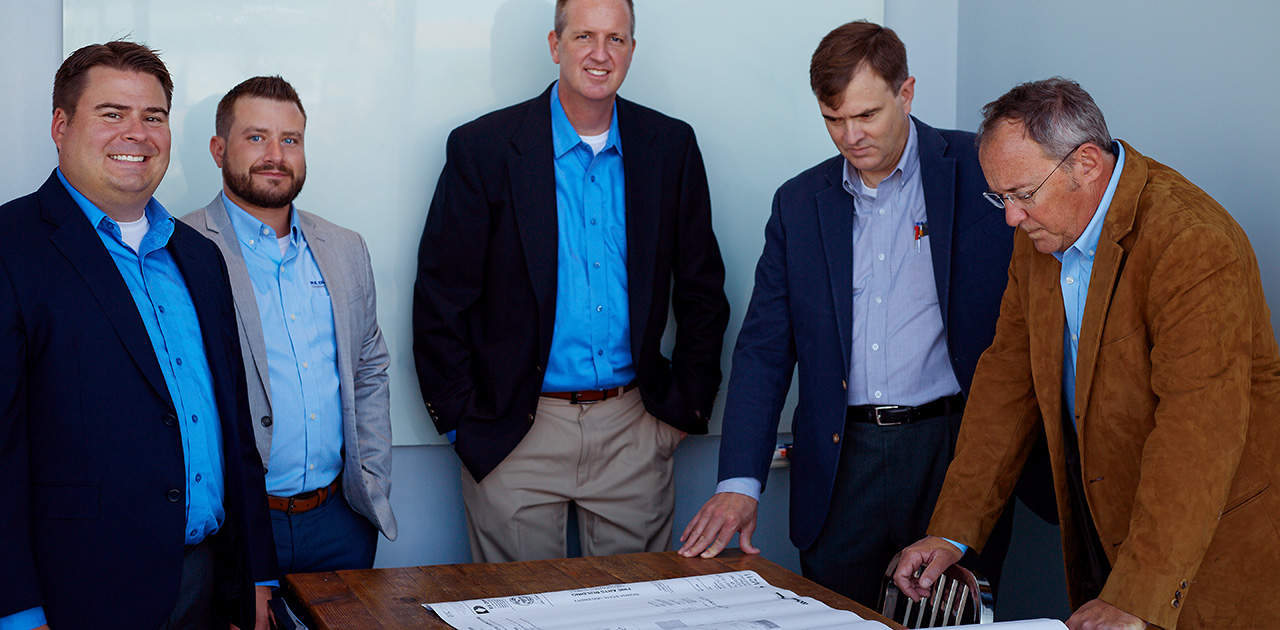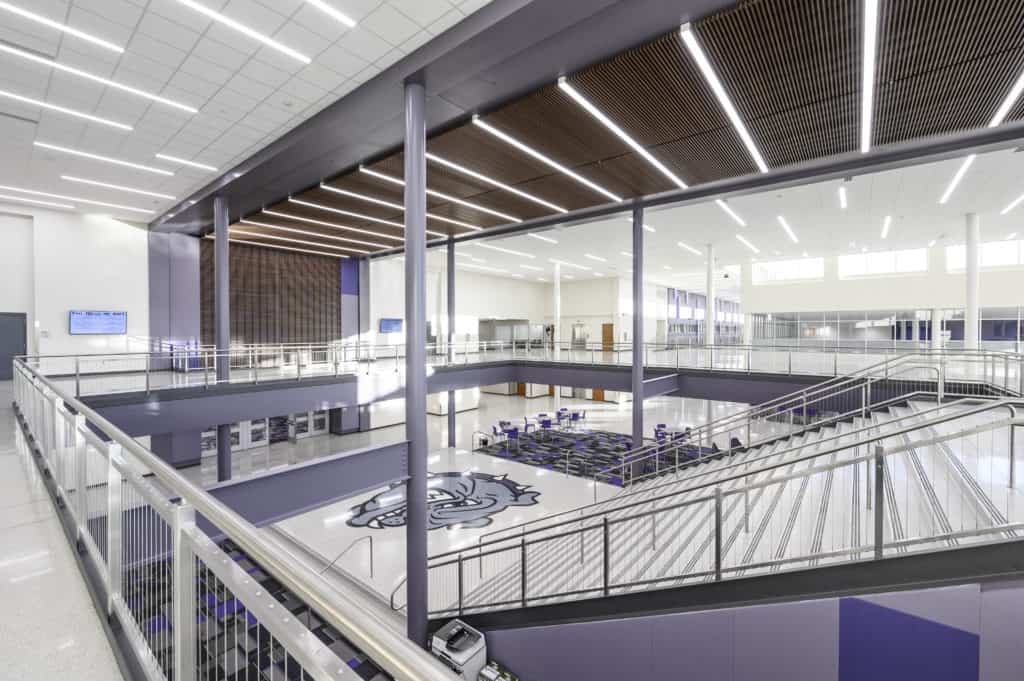Posted on February 13, 2023

9 questions to ask your engineering consultant
We get asked a handful of typical questions anytime we start to work on a project. Over the last 25 years, we’ve been asked a handful of deeper questions that have proven helpful for both our clients and our engineers.
These deeper questions have resulted in a smoother communication process, a successful project, and set us up for great long-term working relationships. Consider these when evaluating hiring a consulting engineer.
Introductory questions to ask your engineering firm
Many of these will seem obvious, but they’re an excellent way to establish a baseline for a firm’s development process and overall expertise.
What similar projects have you worked on before?
Many engineering firms specialize in industries, such as healthcare, K-12 schools, or higher education. Some, like us, find significant value in working for several different industries and sectors. What we learn along the way in these projects makes us better, more knowledgeable engineers.
For instance, colleges and universities were ahead of most other industries in reducing resource waste and environmental impact than other sectors. Higher education projects like Rose Hulman’s Institute of Technology gave us insight into new sustainable technologies. Other building projects have shown us what works and what doesn’t in solar, geothermal, and other environmentally friendly technologies. We apply that knowledge to other sectors.
What is your average response time and how do you communicate with our teams?
The response time on a new project is likely to be short at the beginning. But can a firm maintain that quick response time throughout the project? Ask how their company assigns project managers or construction administrators to each project. At R.E. Dimond, every project has a project manager who serves as a liaison between you, your team, and the project’s other disciplines, like architecture, permitting, and more.
An average engineering consulting firm may not care about odd-hour response times or provide regular feedback at set intervals. We prefer projects to have regular updates that keep pace with the project and as conditions demand. This can be in-person, over the phone, or virtual chat via Zoom or Microsoft Teams platforms.
You should also ask what information they share and how. For instance, our construction administration team will help keep all your project’s documents, plans, filings, and more bundled together and available for you upon request and at regular stages of the process.
What professional associations are you all a member of?
Most would expect any engineering consultant to have one or two engineering degrees. But ask them where they studied and why because it can yield insight into deeper expertise and background. Likewise, ask your prospective engineers about professional memberships they might hold or associations they belong to.
Professional memberships show a firm takes continuing education, standards, and skills seriously. For example, R.E. Dimond and Associates maintains several memberships in The American Society of Heating, Refrigerating and Air-Conditioning Engineers (ASHRAE), Institute of Electrical and Electronics Engineers (IEEE), Society for Marketing Professional Services (SMPS), American Society of Plumbing Engineers (ASPE), and others. Each helps our teams network, stay informed, and become thought leaders in their expertise.
Who handles phone calls?
Most engineering firms have someone at the front desk, but when a network or HVAC unit fails in the middle of the night, who do you call?
Go deeper with these questions for MEP engineering consultants
What are some ways you’re different or better than your competitors?
Some of a firm’s key differentiators aren’t always obvious. In the initial consulting interview, ask how a firm is better or more equipped than competitors. This can show you what they take seriously and what reputation they care about.
For instance, R.E. Dimond and Associates enjoys excellent relationships with partner organizations such as architects and contractors we’ve worked with for decades. We take that reputation seriously because it’s been earned over years of hard work, one-on-one time with clients, and countless site visits to ensure projects progress.
What clients have you worked for routinely over the years?

It’s one thing to ask a consulting firm what projects or clients are in their portfolio. Go deeper and ask which clients of theirs keep coming back.
Not every client will have significant ongoing work year after year, but healthcare, education, and large commercial, industrial, or firms likely do.
We’ve been honored to work repeatedly with institutions like Indiana State University, Indiana University, the State of Indiana, Brownsburg School Corporation, the City of Plainfield, and dozens of other long-time friends and clients over the years.
Can you accommodate changes in scope?
We absolutely can, perhaps better than most other consulting engineering firms. Scope changes are almost inevitable. Supply chain issues, material deliveries, permitting, and scores of other factors can and will impact the project timeline and cost, sometimes for the better. We work through scope changes but try to reduce the need through careful planning.
We’d rather change the scope of a project before a budget is set and incorrect information is relayed to contractors or other consultants. Our expertise in this has also resulted in some industry-leading low change-order requests for most projects.
How will I know my project’s progress?
We’re flexible to a client’s needs and team. Some clients prefer regular phone calls or virtual meetings during planning, then choose on-site conversations once work begins. Others prefer remote calls or virtual meetings for the whole project. Some firms aren’t so flexible, but our goal is to answer questions during work hours with the least amount of friction.
Generally, an engineering consultant that gives you project updates before, during, and after each construction phase makes for a smoother construction process.
R.E. Dimond and Associates puts a project manager or construction administrator on-site to answer specific questions, set expectations for everyone working on the project, and ensure a smooth decision process for issues that creep up.
What challenges do you expect?
Construction brings challenges, so you should ask and listen to your engineering consultant when they talk about delays, costs, labor issues, and how they handle them.
Our ultimate goal is to prevent issues through research and engineering expertise. For problems that do arise, they provide an opportunity for creative problem-solving. For instance, lead times for equipment and some materials post-Covid have created a lot of delays for projects around the country. Our engineers are staying ahead of this by checking with vendors, pre-purchasing materials as early as possible, and more. Ask to find out what they can do for you.
